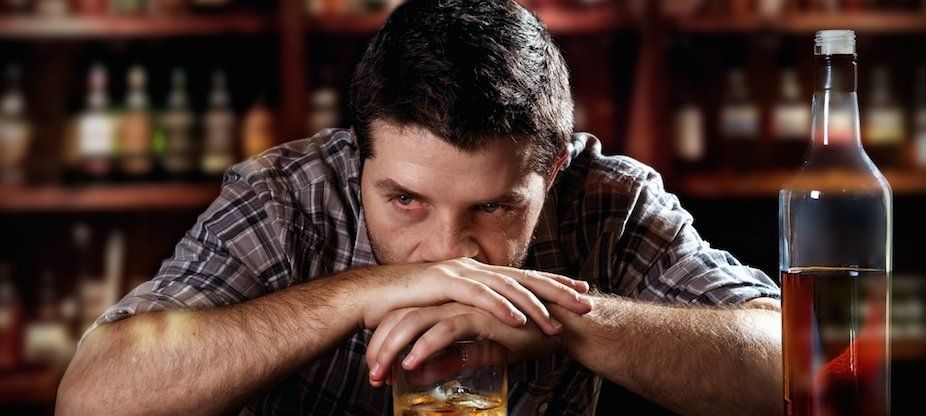By Gabriel Morales
•
October 24, 2017
By Susan Saper Galamba Statistics show that alcohol is the number one drug problem in the United States. It also tends to be a big problem in divorces. There has been a significant increase in cases in the last two or three years in which I have seen one spouse claim that the other spouse abused alcohol. Generally, the spouse I meet with claims that his or her spouse is an alcoholic. As I’m not a teetotaler, I never just accept the claim at face value; rather, I always inquire into the details of the allegations. The fact that someone has a drink every day does not mean he or she is an alcoholic. However, when a person’s dependency on alcohol results in problems with interpersonal relationships, an inability to control alcohol consumption and a disregard of the damage that the alcohol is doing to the spouse and the family, the reality is that there is an issue of alcohol dependency. Alcoholism is the monster in the closet. It is the “thing” for which spouses and children make excuses to keep the monster hidden. What is often the most difficult aspect of divorce for the spouse of an alcoholic is opening the door to the closet and letting the monster come out. This “thing” that the spouse has hidden so well will now have to be proven in court to protect the children. A spouse’s alcoholism may not be an issue if minor children are not part of a divorce; however, it is a significant issue when minor children are involved. Generally, there is a huge amount of guilt involved when the spouse of an alcoholic seriously considers divorce, especially when what the spouse really wants is for the alcoholic to seek help. Whether a spouse is an alcoholic or not, one of the hardest lessons to learn is that the only person you can control is yourself, and if an alcoholic refuses to help him or herself, you have to protect yourself and your children. If you are considering divorce and are married to someone who is dependent on alcohol, you have to stop covering it up. This doesn’t mean you should start making overt statements about your spouse’s problems with alcohol, but rather you should not hide it. If your spouse’s alcohol abuse is going to be an issue in your case, you will have to be able to prove it, but if no one knows about it, how are you going to prove it? Taking a picture of all of the empty beer cans in the trash isn’t going to do the trick. Think about it this way: the picture doesn’t prove your spouse actually drank all the beers in the trash. Conversely, how are you going to refute the allegation that you bought the beers and are merely setting him or her up? However, if you have friends or family members who can substantiate the alcohol abuse, have videos that document the behavior or have other evidence that corroborates your allegations, you are going to be in a much better position when you file for divorce. It’s also important to seek the assistance of a mental health professional for yourself and children, if applicable. You will most likely have plenty of blame thrown at you from your alcoholic spouse, including being the cause of his or her need for alcohol. The input you receive from a mental health professional will allow you to process what’s happening without having your guilt control your reaction. It will also allow your children the opportunity to freely express themselves without the concern that they are being disloyal to the other parent. A frequent obstacle in the pursuit of divorce is the non-alcoholic spouse’s concern about the alcoholic spouse having parenting time with the children. It is this exact reason that you will need proof of the spouse’s alcohol abuse. Courts are supposed to make decisions based on the best interests of minor children, which includes the children’s safety and overall well being. If you have evidence of current alcohol abuse that would endanger the safety of your child, the likelihood is extremely good that there will be restrictions on the alcoholic spouse’s parenting time. The essential component in these situations is exposing the monster and being able to prove that the spouse’s alcohol dependency endangers the safety of the child. Your word is not going to be enough long-term. I can also assure you that an alcohol dependent spouse who is unwilling to get help will either deny or downplay his or her alcohol consumption. Even when a spouse is arrested for driving under the influence (DUI) or public intoxication, the claim will be made that the children weren’t with him or her and away from danger. It is in these types of situations that you need to be able to prove that the DUI is merely an example of the alcohol dependent spouse’s poor decision making, and offer additional evidence regarding instances when the children’s safety was at risk. The decision to dissolve your marriage to someone who you have always protected and whose monster you have kept hidden in the closet is unbelievably difficult. However, the fear of not knowing what will happen when you open the closet door shouldn’t prevent you from protecting yourself and your children. Source: https://www.huffingtonpost.com/susan-saper-galamba/the-relationship-between-_3_b_2577492.html









